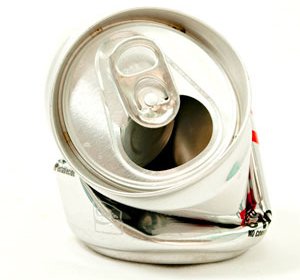 Aluminium
Aluminium
Useful in everyday life – damaging in the body
Aluminium is a Neurotoxin (nerve poison). Studies show that Aluminium penetrates the blood-brain barrier, leading to central nervous system damage and causing symptoms similar to Alzheimer’s disease.
What does it affect?
Aluminium is predominantly excreted by the kidneys, therefore infants and older people need to be careful to protect against kidney disease. Aluminium also accumulates in various areas of the brain.
The results of this can lead to motor- and vegetative regulatory problems, hyperactivity of the parathyroid gland, problems with calcium intake in the bones, impairment of perception, balance and muscle paralysis.
A further negative influence can be seen in an inhibition of glucose decomposition (blood sugar). All symptoms come on gradually, and are often overlooked due to their vague and nonspecific nature.
Where does it come from?
In our foodstuffs, water, hydrogenated fats and oils, pasteurised foods, table salt, processed cheese, baking soda, white flour, ready meals (from the preservatives), cosmetic goods, medicines (antacids), dentures and toothpastes, fertilisers containing phosphates. It is used in and released by the packaging, paper, glass, textile, porcelain and pharmaceutical industries, and it also comes from coal combustion, cigarette smoke, car exhaust gases, pesticides and animal feeds.
In the household, it comes from various cans and dishes. The skins of foods like potatoes and grapes are also often high in Aluminium (depending on the region of cultivation).
How do I find it?
The hair is a good place to measure if you want to know your existing exposure to Aluminium. Through the use of a chelating agent the Aluminium excretion levels in the hair will be raised. Studies show that after an appropriate decontamination treatment, the cognitive symptoms improve, e.g. hyperactive children become calmer.
Trace and bulk elements like Zinc, Calcium, Magnesium, Vitamin B6 and Vitamin C can also help protect the cells from oxidative stress and contribute to a normal healthy metabolism.
Note: Antiperspirant products often contain Aluminium salts. The damaging effects resulting from the intake of Aluminium through the skin are still unclear due to the absence of any long term studies.
Before using supplements such as orthomolecular medicines, advice should be sought from a physician or pharmacist who is well-informed about orthomolecular treatments. Information provided here is not intended to give or represent a medical diagnosis or treatment plan.
Medical questions sent via e-mail cannot be answered.
